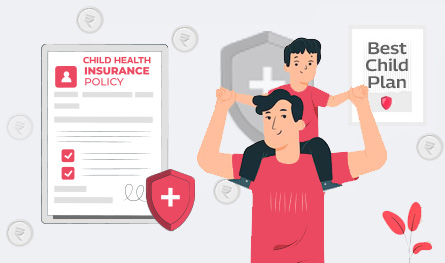Related Articles
 Jan 08, 2025
Jan 08, 2025
Is Varicose Vein surgery covered under the health insurance policy in India
 Health Insurance
Health Insurance
.png)
.png)
Group Health Insurance, or GHI, as it is commonly termed, is an employee benefit plan that protects policyholders against financial and medical emergencies. In this post, we will discuss group health insurance policy for employees in detail.
Group Health Insurance is a health insurance policy that covers a group of employees of an organization under a single plan.
Depending on the employer and the policy, the requirements of a group health insurance coverage might vary. However, there are some general factors that are commonly considered under most plans. They are:
Some GHI or group health insurance plans require retired individuals to reach a certain age to consider them eligible for continued coverage post-retirement. Depending on the plan, the age might vary. However, in most cases, it is 65 years.
Some group health insurance plans require employees to have a certain number of years of employment with their employer to be considered for post-retirement GHI coverage. This also varies depending on the company and may be between 5 to 20 years.
Some group health insurance plans allow retired employees to continue enjoying their GHI coverage by paying the required premium on their own.
All the above and many other factors are considered for post-retirement Group Health Insurance plans. However, you must note that all the above requirements might vary depending on a particular plan and the employer. Thus, reviewing the policy documents to understand the eligibility requirements for GHI or group health insurance coverage post-retirement is good.
When it comes to the cost of GHI or Group Health Insurance, it varies depending on varied factors. Some of them are:
Generally, GHI coverage for retired individuals is costlier than for active or working employees. This is because older adults are at a higher risk of health conditions than young ones. Also, the retirees need enhanced coverage as compared to the employees who are working and are active.
Some companies let employees continue their group health insurance coverage even after retirement. However, the retirees should pay the full cost of the coverage on their own. On the other hand, in some cases, retired employees may be eligible for different post-retirement group health insurance plans available at different costs and benefits as compared to the plan offered to employees who are currently working.
Hence, in such cases, the retiree might consult the insurer or the employer to understand the costs and related benefits offered under GHI coverage post-retirement.
~ Bajaj Allianz Group Health Insurance
~ Cholamandalam MS Group Health Insurance
~ Bharti AXA Group Health Insurance
~ Digit Group Health Insurance
~ They are easy on your pocket
~ They offer an easy claim process
~ These are some value-for-money plans
~Covers PED or pre-existing diseases without a waiting period
Individuals eligible for group health insurance in India are government employees or a company with 20 or more employees.
Young and healthy? Find out which of these plans rewards you with lower premiums. Click here to check now!

Paybima Team
Paybima is an Indian insurance aggregator on a mission to make insurance simple for people. Paybima is the Digital arm of the already established and trusted Mahindra Insurance Brokers Ltd., a reputed name in the insurance broking industry with 21 years of experience. Paybima promises you the easy-to-access online platform to buy insurance policies, and also extend their unrelented assistance with all your policy related queries and services.


Health insurance plans are purchased with the hope of medical protection in times of need. However, sometimes it ends up being a source of surprise and disappointment. This mostly happens when people rush to buy health insurance plans, often overlooking essential aspects. Ignoring waiting period clauses, misunderstanding exclusions, and being unaware of sub-limits can lead to unwanted problems in the future.


Term insurance is an important investment. However, with the availability of so many insurers offering term plans, it becomes difficult to select the best term plan to suit your needs. Buying a term plan needs some consideration and research on the part of the policyholder. In this post, let us discuss the best term insurance providers in India.


If you think of life insurance, chances are you are picturing something people buy in their 30s or 40s. But what if you are 65 or older and just getting started? The good news is that you are never too late. Whether you are thinking of easing the financial burden on your family, covering final expenses, or simply leaving behind a legacy, there are life insurance options tailored just for you.
This article will be a guide to life insurance for senior citizens above 65 years, explaining why it is important, the type of insurance options, and how to get the right policy for you.


As any parent will tell you, kids come with two things: endless energy and absolutely no sense of self-preservation. From scaling chairs and tables like mountaineers to catching germs within a five-mile radius, kids really know how to keep everyone on their toes. Now, it is understandable you are worried. As much as we would love to wrap our small ones in cotton wool and keep them safe forever, real life has other plans.

.png)
It is very important to know the car insurance cost in India so that you can find the affordable policy that you are looking for in this case.
